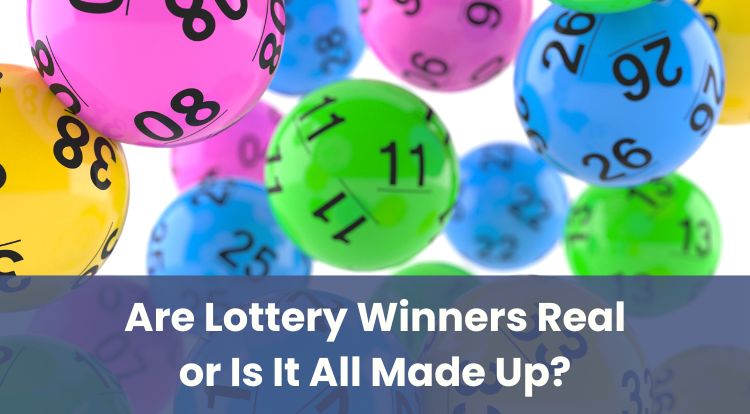
Winning the lottery is something people often talk about. Scratchcards, weekly draws, and jackpots regularly appear in the news and in everyday conversations. With so many headlines and claims in circulation, it’s understandable to question how much of it reflects what actually happens.
If you’re curious about lottery wins and wondering if people really receive those large amounts, this guide looks at what’s happening behind the scenes. Read on to learn more.
Why Do Players Doubt Lottery Wins?
Some players feel uncertain because many jackpot winners decide not to share their identity. When only a few stories reach the public, it can seem like major wins don’t happen very often.
Then there are the odds. For example, the chance of winning the National Lottery jackpot is about 1 in 45 million. These numbers can make it seem unlikely that a winner exists, especially when most people haven’t met one.
Online forums and social platforms can also spread stories about scams or fake wins. These claims sometimes cause confusion, especially when combined with the privacy protections given to winners. Lottery operators are not required to release full details about those who win, which may leave people with questions.
Where Does National Lottery Prize Money Come From?
Lottery prize funds in the UK are drawn entirely from ticket sales. For every £2 ticket, funds are divided in set amounts:
-
Around 45% goes to prizes
-
About 28% is distributed to Good Causes across the UK
-
Around 12% goes to the Treasury as duty
-
Around 5% is paid to the operator
-
Retailers receive approximately 5% in commission
-
The remainder supports other costs, such as special draws and scratchcard prize funds
All money awarded in prizes comes directly from players taking part in each draw. No public money or government budgets are used to fund any payouts.
Is There Any Truth in Fake Lottery Rumours?
Discussions about fake lotteries or rigged outcomes are common online. These often begin with scam emails or texts claiming someone has won a prize, even though they never bought a ticket. These scams are unrelated to the official UK National Lottery.
Some people also raise questions because of how few winners are publicly known. This is allowed under data protection regulations and is often a personal decision.
The UK National Lottery is run by Allwyn, which took over in February 2024. Allwyn, like previous operators, is regulated by the UK Gambling Commission (UKGC). This includes regular checks and audits of the games and systems used.
If you receive a message asking for payment in order to claim a win, it is likely to be a scam. The official lottery does not ask winners to pay fees before releasing funds.
Draws are overseen by independent parties and follow verified procedures. Regular reviews help ensure the system is fair and that results are not affected by outside interference.
Real Evidence Supporting Lottery Winners
The National Lottery follows rules set by the UKGC. These include strict standards for how draws are run and how prizes are distributed.
When large prize winners choose to share their stories, these are often published on the National Lottery website and in national news outlets. For example, a £177 million EuroMillions jackpot was won in November 2024 and confirmed by official sources. In that year, 383 new millionaires were created through National Lottery games.
The National Lottery regularly publishes figures showing how much money has been awarded in prizes. Since 1994, around £95 billion has been paid out to players.
Prize claims go through secure checks before any funds are released. Larger winners are offered support, including financial and legal guidance, to help them understand their options.
Is The Lottery Worth Playing?
Whether you decide to play is entirely up to you. The chances of winning the main jackpot remain very low, around one in 45 million. Smaller prizes are more common, but there is no certainty when it comes to outcomes.
Many people in the UK choose to play as a form of entertainment. A single entry usually costs £2. The results of each draw are random. The prizes depend on the ticket sales and the structure of the game.
Some people play in groups, such as workplace syndicates. This can reduce the cost per player, though any winnings are then shared equally between the group.
Players should always remember to gamble responsibly and within their means- never wager more than you can afford to lose. The lottery should be played for entertainment only, and not the prospect of potential financial gain.
**The information provided in this blog is intended for educational purposes and should not be construed as betting advice or a guarantee of success. Always gamble responsibly.
*All values (Bet Levels, Maximum Wins etc.) mentioned in relation to these games are subject to change at any time. Game features mentioned may not be available in some jurisdictions.
